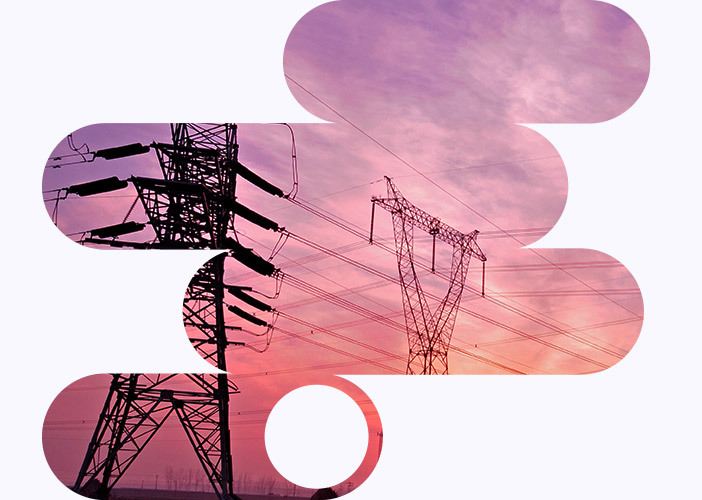
GRIDS
Context
Growing populations and the industrial and economic growth around the world is increasing the global demand for electricity. This trend shows no signs of slowing down and will have a significant impact on the management of local power systems. Beyond the level of production necessary to meet this demand, the changes in production methods towards zero-carbon are disrupting the existing energy mix and directly impacting grids.
Adapting networks to meet the growing demand for electricity
Greater consumption of electricity due to the increasing urbanisation around the world requires networks transporting electricity from production plants to delivery points to be adapted to meet this demand. Modernisation, resilience to consumption peaks, and continuity of service are the main challenges for tomorrow's electricity networks.
Integrating decarbonised energy into energy grids
The continued development of nuclear power plants and the integration of renewable energies lie at the heart of a decarbonised energy mix. Their impact on the electrical networks must be anticipated however, so that interconnections are made without destabilising grids (considering the intermittence of renewables or the location of new power plants as key aspects in this equation).
Managing the regulatory constraints of each country’s energy mix
The regulations governing electrical networks are sometimes significantly different between neighbouring countries. Respecting local norms and standards to develop or modernise electrical networks can be a major challenge for electrical operators.
OUR EXPERTISE IN GRIDS
With more than 55 years in the energy, nuclear, and power sectors, Assystem can quickly master local practices and constraints required to for the management of electrical networks. Our teams offer expertise in
Transportation networks have a critical role in our society. They are the lifelines that connect our towns and cities and allow us to gather and interact. To guarantee smooth and fluid operations, it is crucial to have reliable and safe facilities that provide services which meet users’ needs, made possible by implementing digital solutions and systems.
transmission and distribution, power system analysis studies and simulation, grid impact evaluation, engineering studies, and requirements management. Our teams provide decades of complex project experience, taking full responsibility from start to finish:
- Consulting & Project Management
- Siting, permitting & environment
- Feasibility, conceptual to tender design
- Detailed design and specification of new installations
- Standards assessment and validation
Our strength also lies in our ability to support operators throughout their project: indeed, our teams will be able to participate in the development of new nuclear power plants, in the implementation of renewable projects and to ensure their optimal integration to the local electrical networks in terms of transport and distribution.
OUR MAIN OFFERINGS
-
Geological & geotechnical studies, environmental impact assessment
-
Impact analysis, design standards & regulations
-
Digital twin, modelling & simulation
-
Supply chain management & compliance
Learn more about our Engineering, Digital and Project Management activities.
